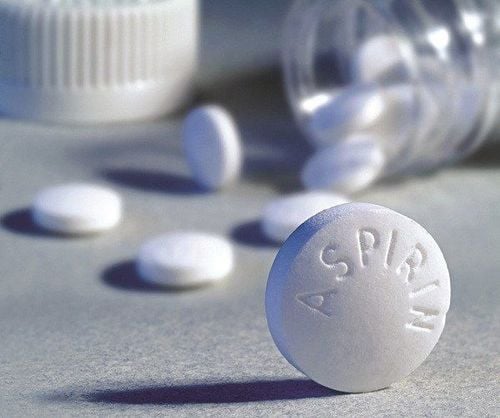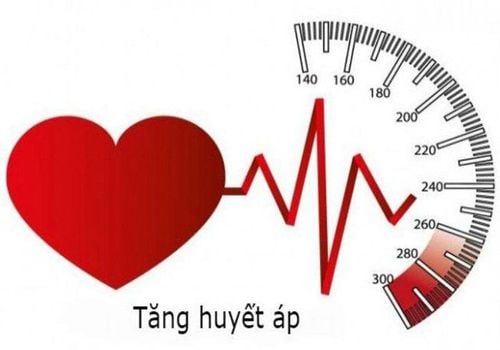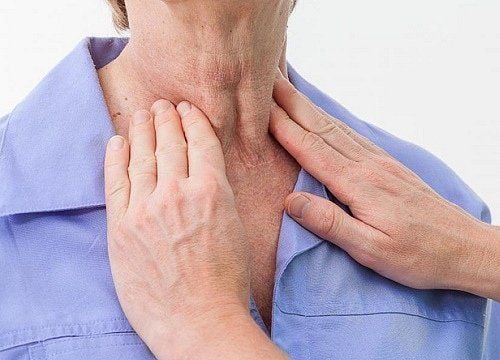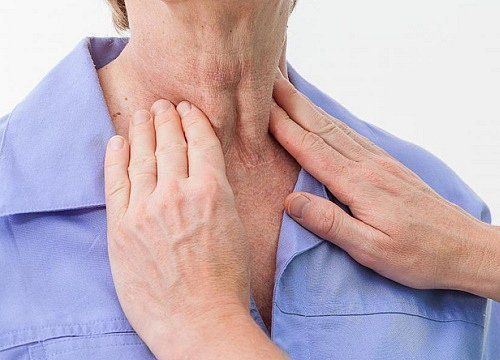This is an automatically translated article.
The article was professionally consulted by Specialist Doctor I Nguyen Hong Phuc - Emergency Resuscitation Department - Vinmec Phu Quoc International General Hospital. The doctor has many years of experience in the treatment of blood pressure.Blood pressure disease including high blood pressure or low blood pressure is becoming more and more common, it is the main cause of death and disability due to complications of the heart, brain, blood vessels...
1. What is blood pressure?
Blood pressure is the force of blood against the walls of blood vessels. It is a necessary amount of pressure exerted on the walls of arteries to bring blood to the tissues of the body. Blood pressure is created by the force of contraction of the heart and the resistance of the arteries.Normally, blood pressure during the day is higher than at night, blood pressure drops to its lowest around 1-3 am during deep sleep and highest blood pressure between 8 and 10 am.
Blood pressure is one of the main signs that the body is alive or dead. Without blood pressure blood cannot circulate in the human body so living organisms do not receive enough oxygen and nutrients to function according to their needs.
1.1 High blood pressure Blood pressure increases with exercise, physical exertion, nervous tension or strong emotions.
When the systolic blood pressure is greater than 140 mmHg and/or the diastolic blood pressure is greater than 90 mmHg, it is diagnosed as high blood pressure.
1.2 Blood pressure drops On the contrary, when the body is rested and relaxed, blood pressure can drop. When cold causes vasoconstriction, or taking certain vasoconstrictors or inotropes, eating salty foods can raise blood pressure. In a hot environment, sweating, diarrhea... or taking vasodilators can cause low blood pressure.
1.3 Normal blood pressure Normal blood pressure: For adults, systolic blood pressure below 120mmHg and diastolic blood pressure less than 80mmHg is called normal blood pressure.
2. How to perform a blood pressure measurement
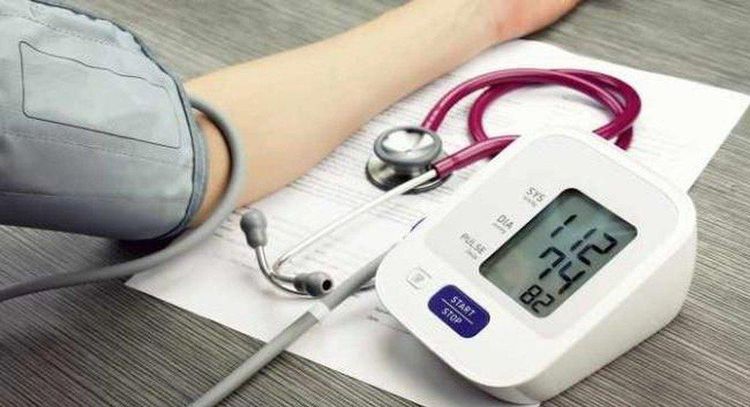
When measuring blood pressure at home to confirm the diagnosis, it is necessary to ensure all 3 of the following: Each blood pressure measurement needs to be measured twice in a row, 1 minute apart in a sitting position, need to measure blood pressure 2 times Every day, preferably once in the morning and once in the evening, blood pressure should be measured continuously for at least 4 days, ideally 7 days. Discard the first day and use the mean of the remaining measurements (> 135/85 mmHg) to confirm diagnosis
3. Is high blood pressure dangerous?
High blood pressure is very dangerous and is considered the "silent killer". High blood pressure does not always present obvious symptoms. But it can lead to damage to the arteries and veins, reducing blood flow throughout the body, which can lead to strokes, heart attacks, and heart failure. Other parts of the body such as the kidneys, limbs, and eyes may also be affected. High blood pressure affects many organs with serious consequences.3.1 How does high blood pressure affect the heart? 3.1.1 Damage to blood vessels The circulatory system is responsible for transporting blood oxygen throughout the body. Normal arteries will stretch slightly as blood is pumped through. High blood pressure causes the arteries to dilate and cause damage. Over time, teardrop-shaped scar tissue develops in the artery wall.
3.1.2 Atherosclerosis Atherosclerotic stenosis, also known as atherosclerosis, is when the arteries are narrowed by plaque and cholesterol buildup in the walls, causing coronary artery disease. If the left ventricle of the heart is thickened, it will limit the ability of the left ventricle to pump blood. The amount of blood remaining in the heart will form blood clots that narrow or block the arteries, which can easily lead to a stroke or heart attack. Blood clots also block blood flow to other vital organs causing necrosis. Chronic high blood pressure forces the heart to work harder, causing the heart to become increasingly weak, leading to a very high chance of heart failure.
3.1.3 Peripheral artery disease Any part of the body that doesn't get enough oxygen from the blood is very dangerous. A symptom of insufficient blood flow to the limbs is a feeling of pain or numbness, this is called peripheral artery disease. This disease increases the risk of infection and tissue death, also known as limb gangrene, requiring amputation.
3.2 What happens to the central nervous system? 3.2.1 Transient cerebral ischemia The brain cannot function without a steady supply of blood oxygen to the brain. Narrowed arteries or blood clots that can block blood flow to the brain for a short time is called a transient ischemic attack (TIA) or mild stroke.
People with TIAs are at very high risk of having a true stroke, which means that blood supply to the brain is blocked for a longer time, causing brain cells to quickly die and lose function. A stroke can cause serious, sometimes irreversible, damage, the specific extent of which usually depends on the part of the brain affected. The biggest risk factor for stroke is high blood pressure.
3.2.2 Cognitive Impairment and Dementia Other potential risks of high blood pressure are mild cognitive impairment and vascular dementia (this is a disease of the brain, caused by poor blood circulation). blood flow to the brain is interrupted). Symptoms of the disease include memory loss, loss of reasoning, thinking, and speech and language abilities.

3.3 How does high blood pressure affect the kidneys? 3.3.1 Impaired kidney function The kidneys filter wastes, retain essential substances, and remove substances that cannot be used by the body. The kidneys cannot function without an adequate supply of oxygen to the blood. When the blood vessels are narrowed, the blood supply is also limited, making the kidneys less and less efficient at filtering toxins
3.3.2 Loss of kidney function Over time, when glomerular fibrosis appears the kidney will completely stop working, the kidney will lose its excretory function and the patient will need dialysis or a kidney transplant. One of the causes of kidney disease is high blood pressure. If the renal artery becomes enlarged resulting in a rupture of an artery in the kidney, it will cause internal bleeding, which can be life-threatening, which is also present in some cases.
3.4 Is sexual dysfunction possible? High blood pressure can cause sexual dysfunction in both men and women. In men, to achieve and maintain an erection, the penis needs an adequate blood supply. If chronic high blood pressure damages the arteries and blood vessels leading to the penis, the chances of it leading to erectile dysfunction (ED), premature ejaculation and impotence are very high.
High blood pressure can affect a woman's vaginal blood flow, causing vaginal dryness, pain during intercourse, decreased sex drive, and difficulty reaching orgasm. Sexual dysfunction causes anxiety for both men and women and affects marital relationships.

High blood pressure is one of the common diseases, so it is necessary to have regular blood pressure checks in reputable hospitals. To prevent high blood pressure, you can choose the HIGH PRESSURE EXAMINATION PACKAGE at Vinmec International General Hospital.
Cardiovascular Center is one of the leading spearhead centers of Vinmec International General Hospital, the expert team of Cardiology Center includes rich professors, doctors, specialists 2, masters. experience, great reputation in the field of medical treatment, surgery, interventional cardiac catheterization and application of advanced techniques in the diagnosis and treatment of cardiovascular diseases. In particular, the Center has modern equipment, on par with the most prestigious hospitals in the world. In addition, the center has a comprehensive cooperation program with Cardiology Institute - Bach Mai Hospital, Cardiology Department of Hanoi Medical University, Paris Decartes University - Georges Pompidou Hospital (France), University of Pennsylvania (USA) period) ...
Please dial HOTLINE for more information or register for an appointment HERE. Download MyVinmec app to make appointments faster and to manage your bookings easily.
Reference article source: Vietnam Cardiology Association





